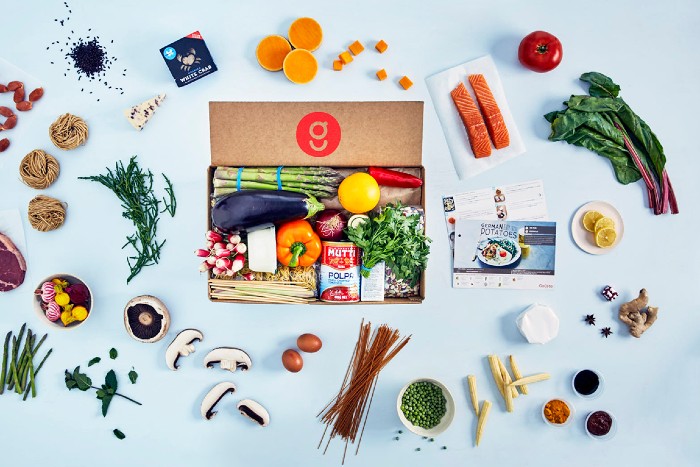Nowadays, there seems to be a subscription box available for almost every category in online retail, from meal kits to craft kits, beauty products to confectionery.
Subscription box retailers have enjoyed a steady growth in recent years, with 27.4 per cent of Brits signed up to subscription box services as of February 2019, according to Royal Mail Group. At the time, the UK subscription box market was forecast to reach £1 billion in value by 2022, a 72 per cent increase from its value in 2017.
While the Covid-19 pandemic affected trading on the high street due to temporary store closures from lockdown, subscription boxes enjoyed a fruitful period as millions were stuck at home – hence the rise in online shopping and the spike in sighn-ups to subscription boxes.
Cashback website company TopCashback told Retail Gazette that two in five consumers have signed up to new subscriptions since the Covid-19 pandemic began. At least 57 per cent of Brits now have a subscription – up nearly 10 per cent on last year.
Subscriptions proved to be so popular during lockdown that meal kit services such as Gousto announced it would create 1000 new jobs following a surge in sales. The subscription-based grocery retailer posted a 115 per cent in sales during the first half of 2020, while revenues hit £83 million.

Many major retailers such as Hotel Chocolat, Nespresso and Majestic Wine now offer subscription boxes. But should more retailers, particularly fashion brands, turn to this initiative as more consumers shift to online shopping post-lockdown?
“Influence from the entertainment industry such as the likes of Netflix and Spotify, have arguably forged the way for subscription services in retail,” said Laura Morroll, senior manager at technology consultancy BearingPoint.
She added that at a time when personal expenditure is being managed, subscription boxes can also help customers with budgeting for regular purchases.
“Subscription services offer customers a seamless and convenient experience”
“From a customer perspective, subscription services play to the call for convenience alongside other efficiency focused propositions such as click and collect,” she told Retail Gazette.
Adobe commercial business director Brian Green said the shift towards subscription boxes “comes as little surprise” as they remove the need for online queues as well as having to re-enter delivery and purchase information.
“Subscription services offer customers a seamless and convenient experience as they look to establish a routine with their online shopping,” he said.
Green added that more retailers should consider this strategy because it offers a “multitude of benefits” for brands. For example, subscription boxes offer retailers a predictable revenue stream, as customers pay the same prices month to month. Retailers can also forecast their financials more accurately and adapt their strategy accordingly, which may prove to be particularly crucial during these unprecedented times.
Green told Retail Gazette that subscription boxes also increase stock predictability, in turn helping retailers to remove the cost of aged stock and better forecast their customers’ needs.
However, Martin Fawcett, founder of The Shopper Agency, argued that retailers may risk abandoning sustainability initiatives with excess packaging.
“By focusing on the immediate commercial benefit, retailers risk missing wider consumer concerns, such as sustainability, which can be negatively impacted by an increase in excess packaging,” he explained.
“Balancing subscription-based business models and sustainability is especially important for high-end brands where consumers are not just buying a product, they’re buying a brand that speaks to their values, desires and aspirations.”
“Influence from entertainment industry has forged the way for subscription services in retail”
Callum Saunders, head of planning at marketing agency ZEAL Creative, said retailers should overlook the downfalls that come with offering subscription services as “introducing new business models and routes to shoppers is no easy feat”.
“That desire to innovate, and the willingness to test and learn is critical to separate forward-thinking brands from their more stoic competitors,” he added.
Earlier this week, data from retail intelligence firm Springboard suggested that the first full week of mandatory face coverings in retail shops around England led to sluggish overall footfall figures across the UK.
Footfall across all retail destinations throughout the UK rose by 2.8 per cent last week from the previous week, and Springboard said that this was a “modest uplift” from the week before when face coverings were only mandatory on the Friday and Saturday, during which footfall had risen by 4.4 per cent across the country.
Despite this, the pandemic was still having an adverse affect on visitor numbers, with footfall across all UK retail destinations remaining more than a third lower than the same week a year ago, with a 37.6 per cent year-on-year drop.
“With many retailers suffering from a lack of footfall, investment in online and ecommerce services forms a critical component to help make some of this shortfall up,” Saunders said.
He told Retail Gazette that decreased footfall is set to continue with many people continuing to work from home until the New Year, so finding new ways to connect retailers and products with these shoppers looks set to be a key future-facing strategy.
While subscription boxes may not make sense for every retailer, the reasons they are doing well are relevant to the entire industry as tapping into the psyche of today’s shoppers and offering the enjoyment of being surprised could prove beneficial to businesses in the long-term.
Along with distinct benefits such as higher revenues, increased customer loyalty, and improved revenue predictability, the subscription box model also presents significant opportunities for international expansion, with many subscription businesses having the space to make some of their sales overseas.
Arguably, retailers are using subscription services to take their customers on a journey for discovery.
Click here to sign up to Retail Gazette’s free daily email newsletter
Source link



